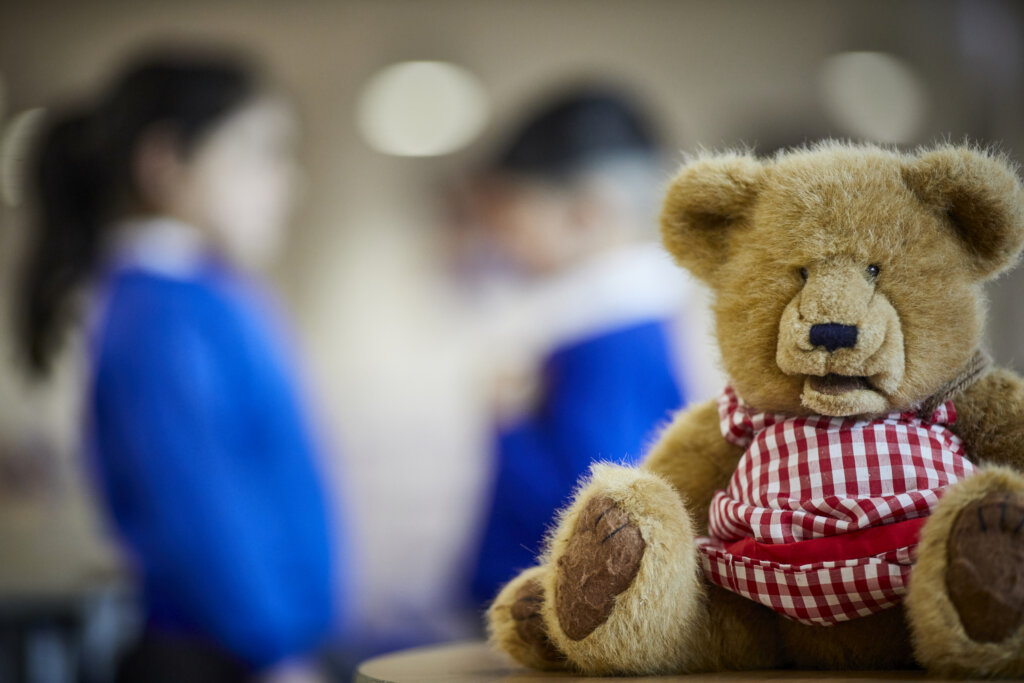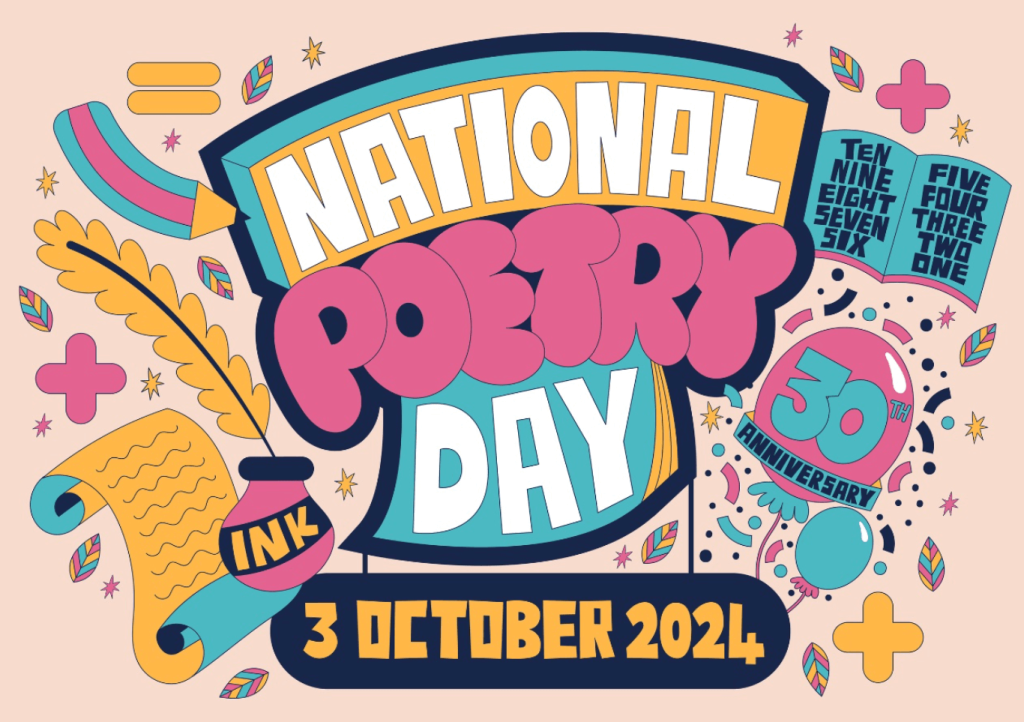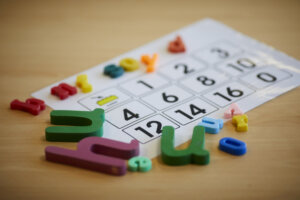Continuing into its fourth decade as a day of celebration about all things poetry, National Poetry Day will fall this year on Thursday 3rd October. In 2024, we are encouraged to explore the theme of ‘counting’, providing vast opportunities for schools to let our inspiration and creativity lead our enjoyment of the poetic form.
Every year, National Poetry Day gives education settings the opportunity to take part in free organised events, competitions and to hear readings by real poets to instil a better understanding of written poetry and love of the spoken word. National awareness days bring about the opportunity to shine a spotlight on an often-over-looked element and to take advantage of the resources and experiences on offer; in this case, educating staff and pupils alike to experience poetry regularly and often and to realise its support in all areas of learning.
Encouraging your staff to spend quality learning time on poetry will not only encourage them to delve deep into the wealth of quality poetry resources on offer; the supported planning you can access will develop their own skills and confidence in delivering poetry which is often an area in which Primary teachers lack confidence in. Research by MacMillan and CLPE in 2023 found that while 80% of teachers recognise the importance and value of poetry for children, 61% had never received professional development training on poetry.
Although poetry needs to be experienced regularly by all, this is often not the case in our classrooms. Research published in The Guardian following the Poetry in Primary Schools report showed that due to lack of resources and training, poetry is only taught once a year in a quarter of UK primary schools. The research also showed that many teachers lack confidence in teaching poetry,
‘Only 38% of teachers felt confident about planning units of work focussed on poetry. Many cited that they felt they didn’t have enough knowledge about poetry or experience of teaching it to do so.’
Poetry in Primary Schools, 2023, MacMillan and CLPE.
When taught well, poetry engages and inspires, however it can bring fear to teachers. Many feel poetry instruction requires expertise and an understanding they haven’t yet mastered, when poetry actually has the versatility to be more accessible to all levels of writer than many other written forms. Poetry not only delights, paints pictures and plays with words, it develops inference, language and a crucial bridge to build pupils’ understanding of literature.
All opportunities to enhance teachers’ and pupils’ skills in poetry are invaluable. In particular, encouraging teaching staff to break away from the constraints of the curriculum and to experience new poetic forms that embrace the freedom of writing through performing poetry together on National Poetry Day 2024.
Poetry on This Year’s Theme – Ideas and Activities
Counting is a wonderful wide-ranging theme for this year’s National Poetry Day allowing all interpretations of the word. Consider ‘making it count’ as a theme for achieving our best and creating significance; counting in numbers using literal objects, collective nouns or abstract ideas; counting to include or to take into account an opinion or idea; being ‘counted as a…’ to highlight membership or to explain ‘what counts’ in our lives or even the idea of counting as a change over time.
Experience Poetry Together
Take away the pressure of writing poetry by initially spending time reading and listening to a range of poems. Try out different forms of poetry, written by a range of poets and spend time comparing their styles and voices. This exercise can support children to express personal preferences, experience the diversity of poetry and learn and be inspired by real-life poets. Carried out regularly, children will develop knowledge of a wider range of poets and their repertoires. An interesting classroom activity is ‘poetry papering’ where selected poems are displayed around the classroom, giving children the freedom to read and respond to those which they are inspired by. This gives the children the opportunity to simply read a poem, take time to consider its meaning and contribute to a discussion where they can share what a poem means to them while learning about how it may evoke contrasting feelings for others.
As well as excellent free resources that can be found online through the National Poetry Day website, why not try out our free resource.
Perform!
Performance is a vital part of being a poet, giving life to the writing, developing the excitement and enthusiasm of its meaning. Moreover, reading poetry aloud has the added benefits of developing fluency, through re-reading and analysing meaning; progressing oracy skills, and the higher-level accuracy in a pupils’ writing that comes from the accountability associated with performance of their own poetry. Regular reading in groups, alone, modelled by adults, can ingrain the skills of performing poetry, supporting pupils’ confidence. Using intonation and prosody to play with expression of the words’ meanings gives children the opportunity to individualise their interpretation of the poem. The 5 Ps of performance: posture, power, projection, attention to punctuation and incorporating pause can be used to as a checklist for perfecting impact on the audience. Holding a choral poetry festival, performance or assembly is a wonderful way to develop oral poetry progressively through the school. Poems could be linked around a theme or topic to showcase the range of poetry and indeed poets that children can engage with.
Interact with Professional Poets
Seeing the children engage with the enthusiasm and passion that comes from working with professional poets is a hugely valuable experience for children and staff alike. Poets often inspire through lack of constraints which quickly ignites the children’s creativity and motivation to see themselves as writers. Poetry breaks down all barriers with its ‘anything goes’ approach, developing all abilities of writer with the certainty it promises of a successful outcome. Poet visits always bring an enriching and engaging experience, however watching poets perform online or engaging with virtual resources written by poets such poetry workshops, poetry slams or Q&As are an excellent alternative.
Play with Poetry Throughout the Curriculum
Poetry can enhance all areas of learning. A poem about the parts of a plant will most definitely deepen understanding in science. A verse of a song is an asset to a PSHE discussion; poems can be used as an ‘accompanying text’, layering up the pupils’ background knowledge in any area of learning. Poems often summarise effectively giving the opportunity to over-learn and re-visit key information. Additionally, creating a poem together or individually following the learning, to cement pupils’ interpretation of an event gives time to reflect, reinforce and recreate it, shaping their point of view or giving time to make sense of it and then to communicate their perspective.
Share a Wide Range of Poems and Poetry
As the research shows, poetry teaching without adequate resources can create barriers. There is a wealth of online poetry resources to aid planning, but having poetry anthologies in your school library and classrooms is an absolute must. Whether you guide the books or poets into certain year groups or leave it fluid, reading poetry aloud every day or even every week will make a huge impact on children’s knowledge and interpretation of poetry, eventually leading to their enjoyment being truly maximised.
This may also be the perfect time to audit your poetry resources in school. Our partner, Peters has an excellent range of poetry book packs which include many must-have titles for any school. Some of our personal favourites at the moment include:
| EYFS | A Great Big Cuddle by Michel Rosen All I Hope for You by Kate Thompson Blow a Kiss, Catch a Kiss by Joseph Coelho Caterpillar Cake by Matt Goodfellow and Krina Patel-Sage Nature Trail by Benjamin Zephaniah and Nila Aye The City Sings Green by Erica Silverman Tree Whispers by Mandy Ross and Juliana Oakley We Sang Across the Sea by Benjamin Zephaniah and Onyinye Iwu |
| KS1 | A First Book of the Sea by Nicola Davies and Emily Sutton A Songbird Dreams of Singing by Kate Hosford and Jennifer M Potter A Whale of a Time by Matt Hunt and Lou Peacock Home by Isabelle Simler Poems Aloud by Joseph Coelho and Daniel Gray-Barnett Poems Out Loud! By Laurie Stansfield The Star Whale by Nicola Davies and Petr Horacek Together: Animal Partnerships in the Wild by Isabel Otter and Clover Robin Zim, Zam, Zoom by James Carter and Nicola Colton |
| LKS2 | A World Full of Poems by Sonny Ross Courage Out Loud by Joseph Coelho and Daniel Gray-Barnett Coyote’s Soundbite by John Agard and Piet Grobler I am the Seed that Grew the Tree by Fiona Waters and Frann Preston-Gannon My Heart was a Tree by Michael Morpurgo and Yuval Zommer Our Earth is a Poem Smile out Loud by Joseph Coelho and Daniel Gray-Barnett The Big Amazing Poetry Book by Chris Riddell When Poems Fall from the Sky by Zaro Weil and Junli Song |
| UKS2 | A Caribbean Dozen by John Agard and Grace Nichols And Everything will be Glad to See You by Anna Shepeta and Ella Risbridger An Emotional Menagerie by Rachel Saunders Being You: Poems of Positivity by Daniel Thompson and Julia Murray Out There in the Wild by Nicola Davies, James Carter and Dom Conlon Stars with Flaming Tails by Valerie Bloom and Ken Wilson-Max The Final Year by Matt Goodfellow The Lost Spells by Robert MacFarlane and Jackie Morris |
| KS3 & KS4 | A Change is Gonna Come Clouds Cannot Cover Us by Jay Hulme Everything All at Once by Steven Camden Hey, Girl! By Rachel Rooney and Milo Hartnoll Poems to Live Your Life By Chris Riddell SLAM!: You’re Gonna Wanna Hear This The Black Flamingo by Dean Atta and Anshika Khullar The Crossing by Manjeet Mann The Curious Case of Karl Nova by Karl Nova The Dark Lady by Akala The Girl Who Became a Tree by Joseph Coelho and Kate Milner |
We wish you all a wonderful National Poetry Day, whether you are celebrating in a big or a small way, it will be an extremely valuable and rewarding experience. If you would like any support on developing poetry in your school or any other aspect of the literacy curriculum, please contact Alice.Pepper@oneeducation.co.uk
Please complete the form below and we will get in contact as soon as we can to help you with your query.
















